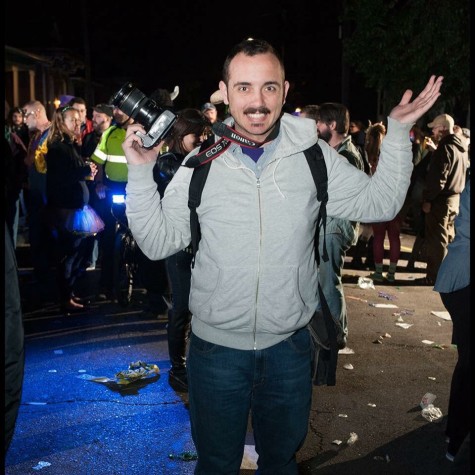Female students are pushing back against the male-dominated arts and entertainment industry with the formation of their group Industry Queens.
The group is called Industry Queens and Emily Hardy, music industry studies senior, is one of the founders. She came up with the idea after discussing encounters with some fellow students in the music industry department.
“Stories come up about different things that have happened to them either in a workplace setting or just through connections and that kind of stuff that have just kind of thrown me for a loop. Like, why was that OK?” Hardy said.
After her unsettling experiences, Hardy wondered if her peers and colleagues had similar experiences.
“So just talking to different friends about it, I started seeing this need for, I guess you could call it a support group, but more its just like a way to network specifically between girls and forging more connection with other girls in the program,” Hardy said.
The music industry is a male-dominated industry, like many in the United States. This provides women with a unique set of struggles of varying degrees.
Gender issues have made national headlines in music industry news in January of 2016. Amber Coffman, singer with the Dirty Projectors, came out and accused Heathcliff Berru, CEO of Life or Death Public Relations and Management, of sexual harassment via Twitter. After her accusations surfaced, more girls came out and accused Berru of sexual misconduct.
Rapper Killer Mike called on men to stand up against sexual misconduct amongst their peers after the allegations against Berru surfaced.
“Men have to be able to tell our friends and peers when they’re wrong. We cannot just say, it’s not my problem. We can’t expect ppl to improve if we’re not willing to hold them accountable and push them to be better,” Killer Mike said in a Facebook post.
It is large issues like this and sexism on a smaller scale that made this group seem necessary to Hardy.
“There has been various things from little things said that don’t mean much like surprise that you know how to do something, you know how to fix levels on a PA system,” Hardy said. “It can be harmless-seeming, it usually is, but sometimes it’s a little uncomfortable for girls and I thing that is part of why we’re doing this.”
The music industry program at Loyola only has one female professor, Kate Duncan. Duncan is optimistic about the potential of this group.
“The group has massive potential to help younger students/musicians realized the need for equality among us all, and to find outlets to express themselves through that lens,” Duncan said.
Spenser Schott, music industry studies senior, is a co-founder of Industry Queens with Hardy and others. Schott sees this group as a way to develop professional networks.
“We wanted to make a network of girls that could call on each other for advice and use each other for a professional resource later in the future,” Schott said.
Schott made a unique observation at one of Loyola’s music industry forums. Schott works for a talent-buyer, which is a very competitive industry. Her boss came to speak and after forum, students have the opportunity to meet the speaker.
“Not a single girl went up to get to know my boss,” Schott said. “I’m like ’Why are no girls in our program interested in being talent-buyers or agents?’ I want to be a talent buyer.”
Schott feels like women just need their own creative space to be able to discuss their issues and goals amongst one another.
“It’s not that we don’t feel support from our faculty and from other students and from the male students and from the student body as a whole,” Schott said. “We just want to be able to have a creative space to go and do this in the spirit of Kathleen Hanna.”








